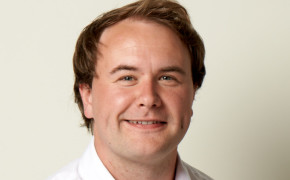Strong translational cooperation between health, research and science partners in clinical academic groups secures excellent research in favour of the patient
From the beginning, the collaboration has been driven by a desire to create a more integrated healthcare sector and a smoother path from basic research to the clinic and from the clinic to the research.
New types of collaboration, more muscle to handle research issues and the opportunity to consolidate and think big are benefits for the research groups that are part of the Greater Copenhagen Health Science Partners (GCHSP) collaboration between regions and universities.
At an operational level, GCHSP is a well-functioning framework that brings together basic research, hospital research and clinical work in so called clinical academic groups (CAG). At the organisational level, GCHSP has succeeded in establishing a forum for dialogue on the health sector of the future.
A CAG consistsof researchers and clinicians from the universities and hospitals. It contributes to the health sector with new research and increased quality within the field of clinical practice. This will be achieved through a strong professional network with a joint strategic aim across healthcare settings from the universities and the Regions. GCHSP consists of 12 CAGs working within their area of treatment expertise.
The CAG leadership is represented by University of Copenhagen, the Capital Region of Denmark, the Technical University of Denmark and Region Zealand. Other organisations may also be a partner in a CAG and a part of GCHSP.
Resources needed
41,4 mio. DKK from 2019-2023 from partners
Each CAG is allocated 0,5 mio. DKK for two years and can apply for further 0,5 mio. DKK for a third year.
The CAG receives 450,000 DKK annually for a three-year period for one PhD student. The CAG is expected to attract external funding.
Evidence of success
GCHSP has established and supports 12 CAGs within different healthcare specialties. Another 6 CAGs are in the pipeline. All CAGs in have achieved results due to their status as CAG, e.g national cooperation with all professional groups, identification of additional diagnostic options etc. Invaluable relationships, broader recruitment areas and cross-cutting agreements in the data processing field have been established. The bureaucratic proces for researchers has become easier.
Difficulties encountered
A challenge in establishing such a collaboration is to reach a consensus on a common goal first and only as a second step focus on the financial model. That makes it easier to focus on the purpose/the goal rather than the financial resources needed.
Potential for learning or transfer
The collaboration represents a major step forward toward an even more integrated health sector, where there are fewer barriers and an even higher level of evidence-based practice. Inspired by the success of establishment of clinical academic groups in NHS in England, the GCHSP was established. The collaboration thus represents a major step forward toward an even more integrated health sector, where there are fewer barriers and an even higher level of evidence-based practice. Other countries have shown great interest in the collaboration’s set-up, and a similar solution has recently been established at NTNU in Trondheim.
Please login to see the expert opinion of this good practice.
Tags: Health, Innovation, Research, Science








